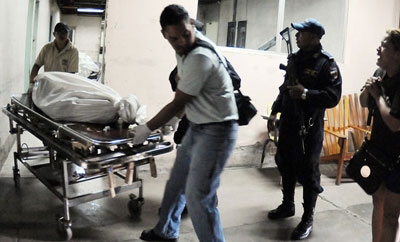In the wake of a prison shootout that left three dead in Honduras, authorities have announced increased security measures to prevent more arms from entering the jail system, where a lack of internal security and appalling conditions continue to fuel violence.
Three prisoners were killed and 12 others injured in an August 2 confrontation in the Marco Aurelio Soto National Prison in Tamara, outside Tegucigalpa, in which AK-47 assault rifles and grenades were used.
According to officials cited by Univision, the confrontation occurred after one prisoner pointed a gun at a Barrio 18 gang member, provoking a violent retaliation, while La Tribuna reported that shots came from members of both the Barrio 18 and Mara Salvatrucha (MS-13) gangs.
Following the incident, the military and police have taken control of internal security for a 90-day period in the Tamara prison and San Pedro Sula prisons, reported La Nacion. The government also announced plans to begin classifying prisoners and recording prisoners’ phone calls, reported La Prensa.
While investigating the incident, authorities found AK-47s, Mini Uzis, 40 caliber revolvers and 11 fragmentation grenades, and said that there were more weapons hidden in arms caches in the walls and floors of the prison, according to La Tribuna.
InSight Crime Analysis
The Honduran prison system is severely overcrowded and violence is endemic, with the country recording the highest number of prisoner deaths in Central America between 2011 and 2012 (although this number was inflated by a prison fire that killed hundreds). A recently released report by the Inter-American Commission on Human Rights (IACHR) stated that 11,709 prisoners were being held in a system built for 8,120, with only four of 24 prisons under capacity.
The IACHR report also noted a lack of monitoring and transparency as serious problems, with internal security often controlled by prisoners themselves. The Marco Aurelio Soto prison is effectively controlled by “bulls” — inmate bosses –, who charge taxes and dole out punishments to other prisoners. Any attempts to break this criminal stranglehold on prison life will likely face fierce resistance — and may well have been a factor in the recent violence.
Whether the recent outbreak of violence was related to gang rivalries or tensions with the authories, it does not bode well for the country’s nascent gang truce — which will require backing from the mostly incarcerated gang leadership to function.

